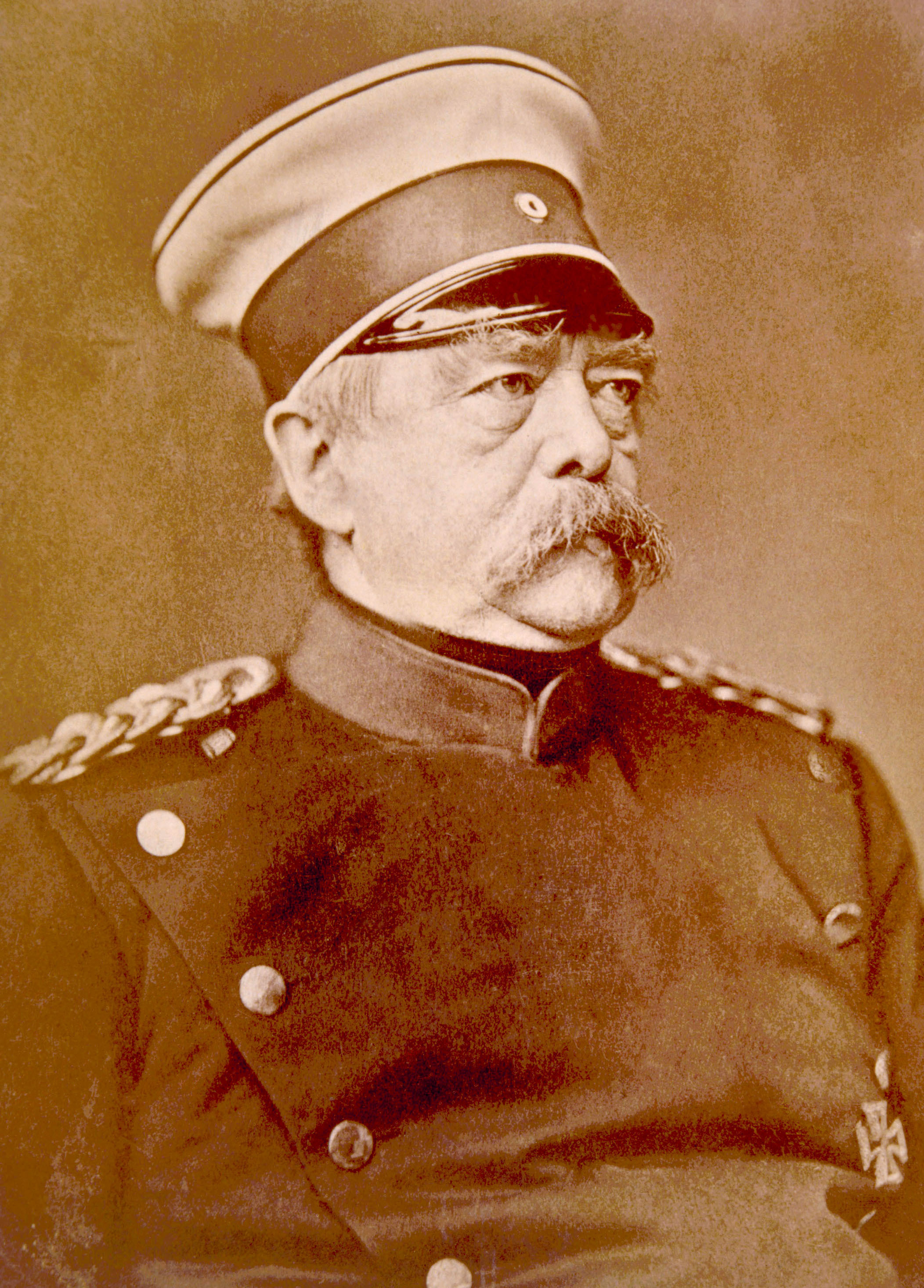
Bismarck, << BIHZ mahrk, >> Otto von (1815-1898), Prince Bismarck-Schonhausen, was a Prussian statesman who united the German states into one empire. He declared that the great problems of his time must be settled by “blood and iron” instead of by speeches and resolutions.
Early life.
Otto Eduard Leopold von Bismarck was born on April 1, 1815, in Schonhausen, in the district of Magdeburg. The son of a noble family, he studied law at the universities of Gottingen and Berlin and was admitted to the bar in 1835. Bismarck served in the army as a lieutenant of the Life Guards and then returned to his family estates. In 1847, he was elected to the Prussian Diet. During 1849, his speeches in the Prussian parliament against revolutionaries attracted the attention of King Frederick William IV. Bismarck made plans for the future German empire as a representative of Prussia in the Diet of the German Confederation from 1851 to 1859. He served as ambassador first to Russia and then to France. He was called back to Prussia in 1862 to become prime minister and secretary of foreign affairs.
Bismarck’s wars.
Bismarck fought three wars to unify the German states. They were against Denmark in 1864; the Seven Weeks’ War against Austria in 1866; and the Franco-Prussian War of 1870-1871. Near the end of the Franco-Prussian War, the king of Prussia was crowned Wilhelm I, emperor of Germany. Bismarck became chancellor and the head of the government of the new German empire. He was soon known as the “Iron Chancellor.”
Bismarck’s diplomacy.
Bismarck’s success in attaining German unity and national power was based on an effective military policy, extraordinary political cunning, and considerable diplomatic skill. He devoted his skills to the establishment of treaties that fortified the position of Germany in Europe. He created the Triple Alliance with Austria-Hungary and Italy, which lasted until World War I (1914-1918). He saw that the position of Germany in Europe might one day be endangered and made a treaty with Russia that guaranteed Germany’s neutrality in case of an attack on Russia. He made peace with Russia and the isolation of France the cornerstones of his policy. He also established the principle that Germany should never fight a two-front war.
Wilhelm II, who became emperor in 1888, was jealous of Bismarck’s fame. He forced the aged chancellor to resign in 1890. Bismarck then retired to his estates at Friedrichsruh. He died on July 30, 1898.
